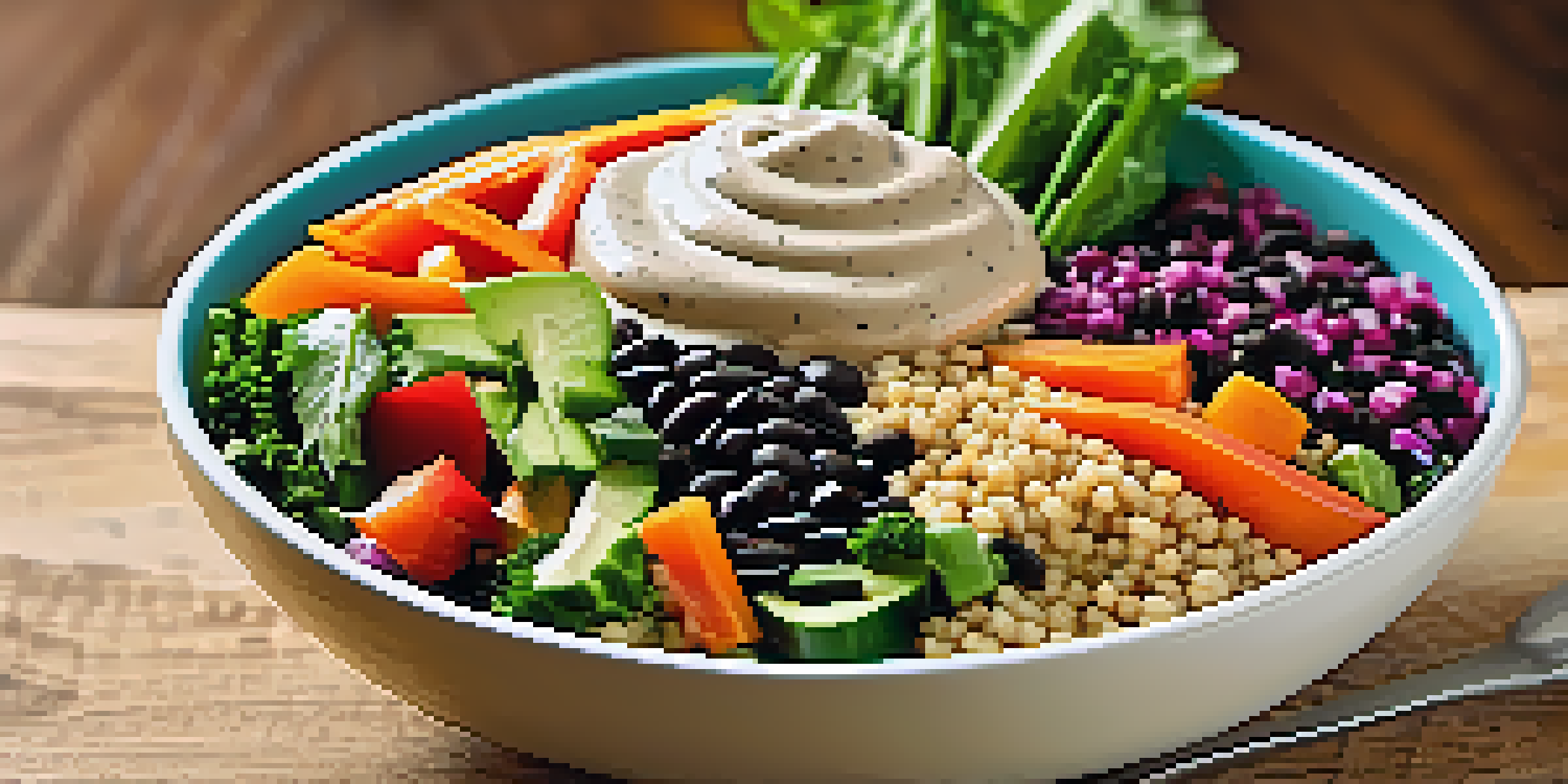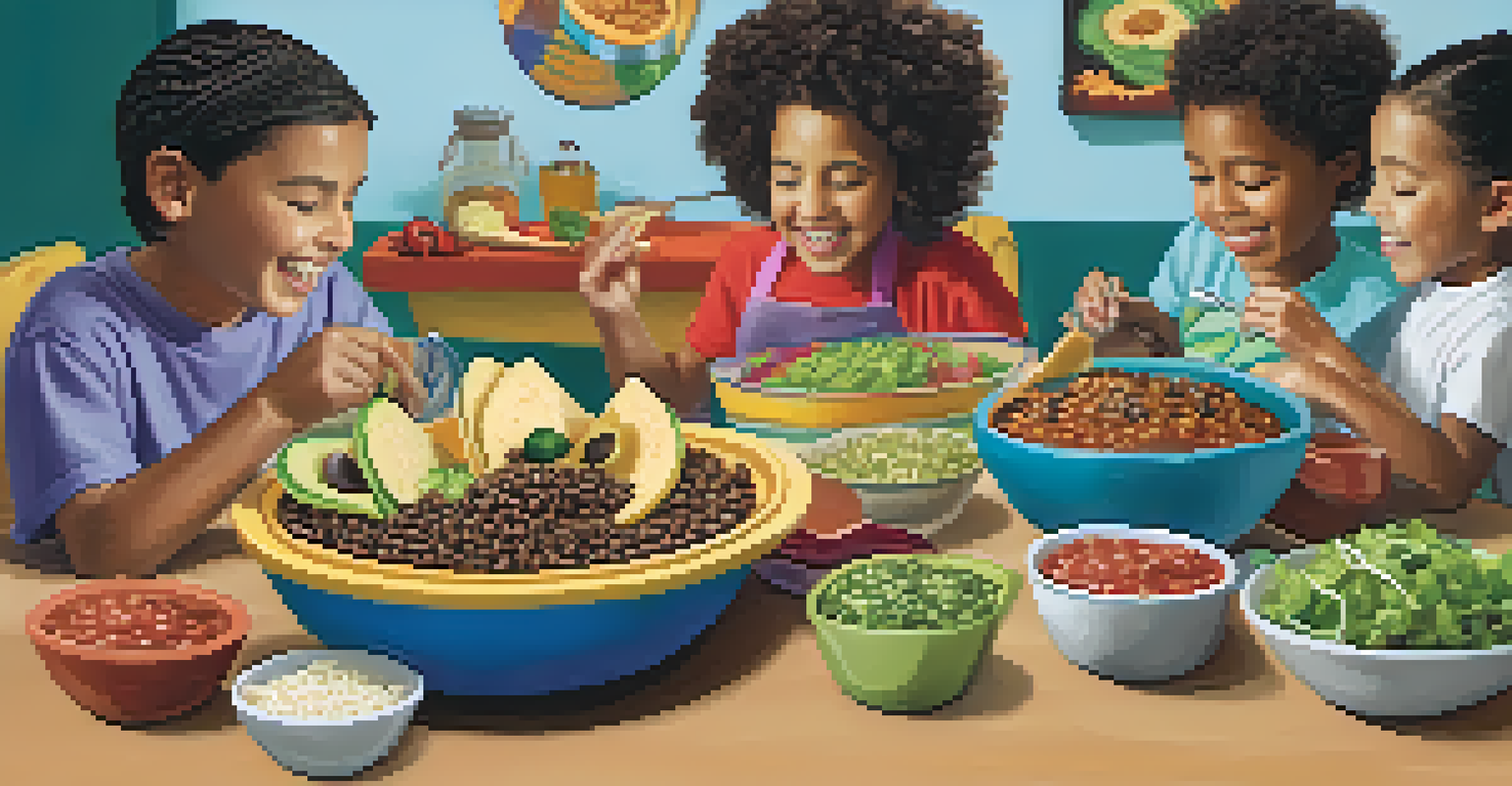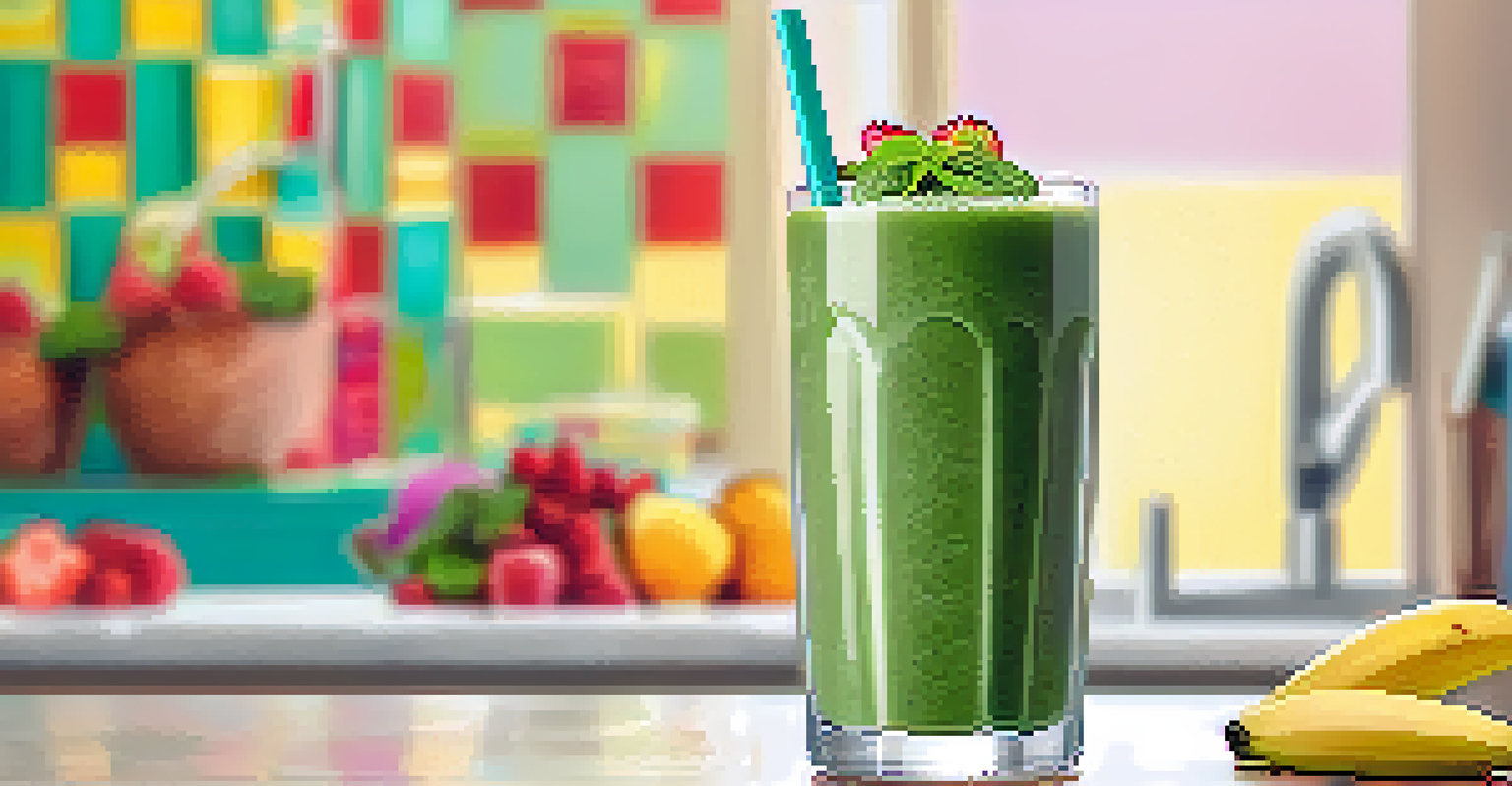The Essential Guide to Vegan Nutrition for Growing Kids

Understanding Vegan Nutrition Basics for Kids
Vegan nutrition is centered around plant-based foods, which can provide all the necessary nutrients for growing kids. Unlike a traditional diet, it excludes animal products, so it's essential to understand which foods can fill those nutritional gaps. Parents often worry about protein and calcium, but with the right choices, kids can thrive on a vegan diet.
Let food be thy medicine and medicine be thy food.
A well-planned vegan diet can offer a variety of nutrients, including vitamins, minerals, and healthy fats. Foods like beans, lentils, nuts, seeds, and whole grains are fantastic protein sources. Leafy greens and fortified plant milks can help ensure kids get enough calcium, a vital nutrient for their developing bones.
Moreover, exploring the colorful world of fruits and vegetables can make meals exciting for kids. The key is to ensure a balanced diet that includes a mix of different food groups, keeping their meals nutritious and enjoyable.
Key Nutrients to Focus on for Vegan Kids
When it comes to vegan nutrition for kids, certain nutrients deserve special attention to ensure they’re getting a well-rounded diet. Iron, for instance, is crucial for energy and cognitive development, and it can be found in foods like lentils, chickpeas, and fortified cereals. Pairing these with vitamin C-rich foods like oranges or bell peppers can help enhance iron absorption.

Another important nutrient is vitamin B12, which is primarily found in animal products. Vegan kids can obtain this vital vitamin through fortified foods or supplements. Ensuring they receive enough omega-3 fatty acids, found in flaxseeds and walnuts, is also essential for brain health and development.
Vegan Diets Provide Essential Nutrients
A well-planned vegan diet can supply all necessary nutrients for growing kids, such as protein, calcium, and iron.
Lastly, don't forget about zinc and iodine, as both play significant roles in growth and metabolism. Foods like pumpkin seeds and seaweed can help meet these needs, making it easier to maintain a balanced vegan diet.
Protein Sources for Growing Vegan Kids
Protein is often a concern for parents considering a vegan diet for their children. Fortunately, there are plenty of plant-based protein sources that can support their growth. Foods like beans, lentils, quinoa, and tofu are not just protein-rich but also packed with other essential nutrients.
You are what you eat, so don’t be fast, cheap, easy, or fake.
Incorporating different protein sources throughout the week can keep meals interesting and nutritious. For example, try a lentil soup one day, followed by a quinoa salad the next. This variety not only supplies protein but also ensures that kids receive a range of amino acids necessary for their development.
Snacks can also be a great way to boost protein intake. Think of options like hummus with veggies, nut butter on whole-grain toast, or a handful of nuts, which are tasty and nourishing.
Ensuring Adequate Calcium on a Vegan Diet
Calcium is vital for young children, especially for their growing bones and teeth. While dairy products are commonly known for their calcium content, there are numerous vegan sources that can help meet these needs. Foods like fortified plant milks, tofu made with calcium sulfate, and leafy green vegetables are excellent alternatives.
Incorporating calcium-rich snacks can also be beneficial. Think of smoothies made with fortified almond milk and spinach or a snack of almond butter on whole-grain bread. These options not only taste great but also aid in calcium absorption.
Focus on Key Nutrients for Kids
Parents should pay special attention to nutrients like vitamin B12, omega-3 fatty acids, and zinc to ensure balanced vegan nutrition.
It's important to monitor calcium intake to ensure kids are getting enough. Parents can consult with healthcare providers or dietitians to determine appropriate serving sizes and ensure that children meet their calcium requirements.
Iron-Rich Foods for Vegan Kids’ Diet
Iron is another critical nutrient for growing kids, as it supports their energy levels and overall growth. Vegan sources of iron include lentils, chickpeas, quinoa, and fortified cereals. However, since plant-based iron (non-heme iron) is not as easily absorbed as the heme iron found in animal products, it's essential to pair these foods with vitamin C-rich options.
For instance, serving lentil stew with a side of orange slices can significantly boost iron absorption. Similarly, adding tomatoes to a chickpea salad not only enhances flavor but also aids in ensuring adequate iron intake.
It's also wise to limit foods high in calcium and polyphenols, such as tea and coffee, during meals, as they can inhibit iron absorption. By being mindful of food combinations, parents can help their kids maximize their iron intake.
Creative Meal Ideas for Vegan Kids
Getting kids excited about vegan meals can be a fun challenge. Think of colorful Buddha bowls filled with rice, beans, and an array of vegetables topped with a tasty tahini dressing. Not only are these bowls visually appealing, but they also provide a balanced meal packed with nutrients.
Another idea is to create DIY taco nights using lentils or black beans as the base. Letting kids customize their tacos with various toppings like salsa, avocado, and lettuce can make mealtime interactive and enjoyable.
Creative Meals Engage Kids in Nutrition
Involving kids in meal planning and offering colorful, interactive meals can make vegan eating enjoyable and nutritious.
Smoothies are another great way to sneak in nutrition. Blend fruits with spinach and fortified plant milk for a delicious drink that’s both nutritious and appealing to kids. These creative meal ideas can help parents ensure their children are excited about their vegan diet.
Addressing Common Concerns About Vegan Kids’ Nutrition
Parents often have concerns when considering a vegan diet for their children, wondering if they’ll receive enough nutrients. The truth is that with proper planning, a vegan diet can be nutritionally adequate and beneficial for growing kids. It’s all about ensuring a wide variety of foods are included in their meals.
Education is key; parents should familiarize themselves with vegan sources of essential nutrients and how to combine them effectively. Consulting with a pediatrician or nutritionist can also provide guidance and reassurance.

Finally, being open to feedback from kids about their meals can help make the transition smoother. By involving them in meal planning and preparation, parents can create a positive environment around vegan eating, ensuring it’s a sustainable lifestyle choice.